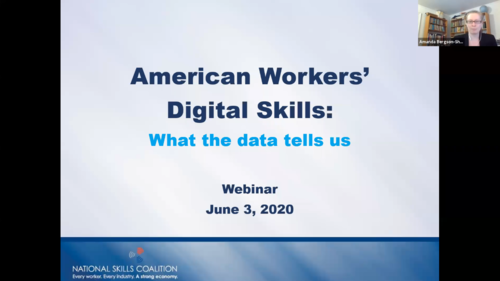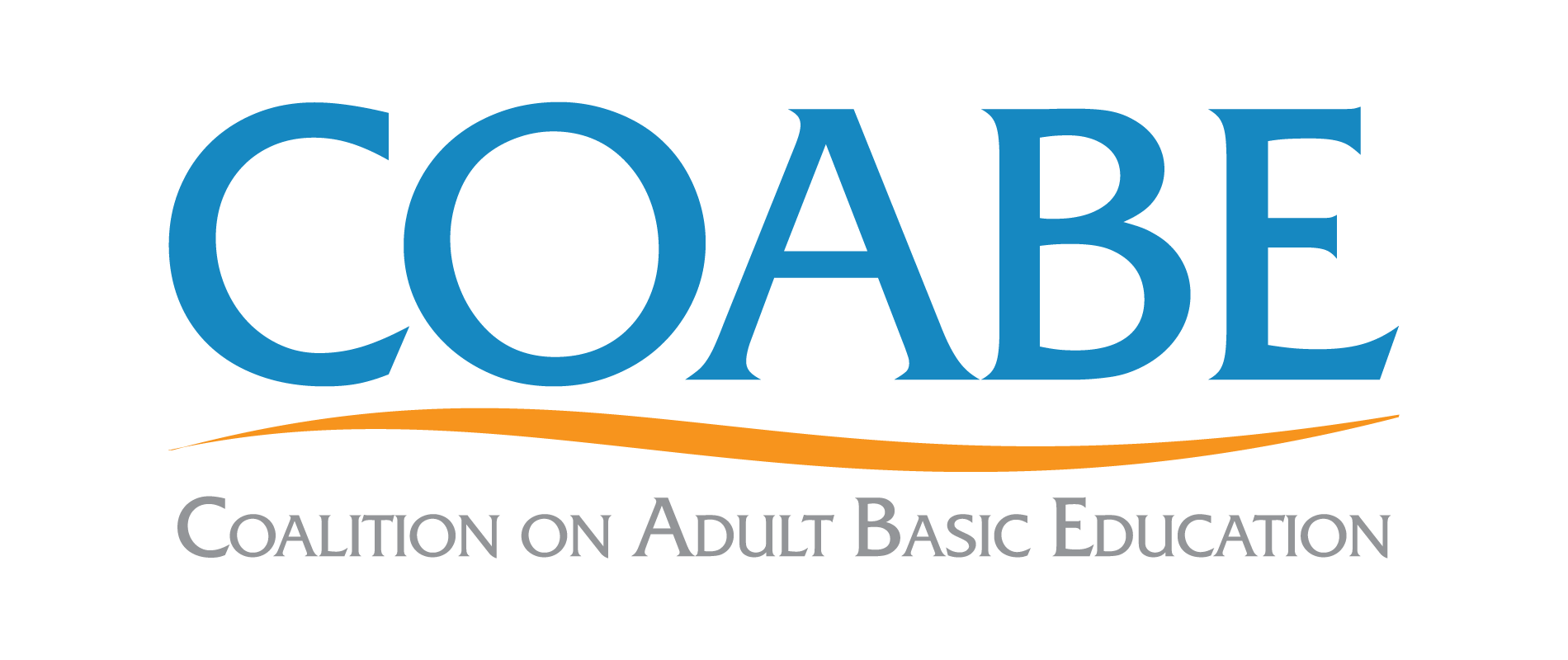General: About PIAAC |
||
|---|---|---|
| Title | Description | Date of publication or dataset used |
Watch the NCES Executive Summary Video, which presents selected findings from PIAAC 2012/2014 for the United States. |
(March 10, 2016) |
View the introductory video from the ETS/OECD PIAAC Research Conference in 2013, featuring interviews with Thomas Freidman, Andreas Schleicher, Irwin Kirsch, Angel Gurria, and others. These presentations are based on PIAAC 2012 data. |
(November 13, 2013) |
The low-skilled are more likely than others to be unemployed, have bad health and earn much less, according to the first administration of PIAAC in 2012. Countries with greater inequality in skills proficiency also have higher income inequality. |
(November 13, 2013) |
|
The low-skilled are more likely than others to be unemployed, have bad health and earn much less, according to the first administration of PIAAC in 2012. Countries with greater inequality in skills proficiency also have higher income inequality. |
(March 10, 2016) |
|
These presentation slides provide an introduction to PIAAC. |
(April 2016) |
|
These presentation slides provide example of the sample tasks used in the PIAAC assessment. |
(June 2014) |
|
These presentation slides provide other resources that can be utilized to delve further into PIAAC. |
(December 2014) |
|
PIAAC Domains |
||
|---|---|---|
| Title | Description | Date of publication or dataset used |
< |
Watch the NCES Executive Summary Video, which presents selected findings from PIAAC 2012/2014 for the United States. |
(March 10, 2016) |
John Sabatini, Principal Research Scientist in the Research & Development Division at Educational Testing Service, explains aspects of the PIAAC literacy domain. |
(July 17, 2013) |
Kentaro Yamamoto, Deputy Director of the Center for Global Assessment at the Education Testing Service, explains aspects of the PIAAC numeracy domain. |
(July 17, 2013) |
|
M. Anne Britt, Professor in the Psychology Department at Northern Illinois University, explains aspects of the PIAAC problem solving in technology-rich environments domain. |
(July 1, 2013) |
|
M. Anne Britt, Professor in the Psychology Department at Northern Illinois University, explains aspects of the PIAAC problem solving in technology-rich environments domain. |
(July 1, 2013) |
|
These presentation slides provide an overview of the PIAAC 2012/2014 results for literacy. |
(Uses 2012/2014 PIAAC Data) |
|
These presentation slides provide an overview of the PIAAC 2012/2014 results for numeracy. |
(Uses 2012/2014 PIAAC Data) |
|
These presentation slides provide an overview of the PIAAC 2012/2014 results for digital problem-solving in a technology rich environment. |
(Uses 2012/2014 PIAAC Data) |
|
U.S. PIAAC Skills Map and Small Area Estimates |
||
|---|---|---|
| Title | Description | Date of publication or dataset used |
This promotional video introduces the U.S. PIAAC Skills Map online tool, where users can easily access the most up-to-date data on adults’ literacy and numeracy for all U.S. states and counties. The Skills Map uses combined U.S. PIAAC 2012/14/17 data. |
(June 17, 2020) |
This tutorial video provides an overview of the types of results available in the U.S. PIAAC Skills Map and how to interpret them. It also explains how to navigate through the various features and functionalities of the tool. The Skills Map uses combined U.S. PIAAC 2012/14/17 data. |
(June 17, 2020) |
The Skills Map provides policymakers, business leaders, educators, and researchers access to data that will support economic development, inform policy solutions, and improve education. The PIAAC Skills Map was recently released by the National Center for Education Statistics (NCES). The PIAAC Skills Map is an interactive tool that presents state and county estimates of adult literacy and numeracy proficiency. These new data include first-of-their kind state- and county-level data on numeracy skills, and greater detail about literacy skills at the state and county level. Tom Krenzke, the key expert of the U.S. PIAAC Skills Map, is a Vice President and a Senior Statistician in Westat's Statistics and Evaluation Sciences Unit. |
(September 2020) |
|
On Wednesday, August 26, 2020, AIR hosted a demonstration of the U.S. PIAAC Skills Map: State and County Indicators of Adult Literacy and Numeracy, a new interactive data tool recently released by the National Center for Education Statistics (NCES). The discussion covered the potential uses of the data from a policy and research perspective, which relates to the workforce, adult basic education, and training. Presenter: Tom Krenzke,Skills Map expert, Vice President and Senior Statistician, Westat Discussant: Cheryl Keenan, Director of Adult Education and Literacy, Office of Career, Technical, and Adult Education, U.S. Department of Education Discussant: Monica Mean, Education Research Analyst, Office of Career, Technical, and Adult Education, U.S. Department of Education Moderator: Holly Xie, Program Officer, National Center for Education Statistics, U.S. Department of Education |
(August 26, 2020) |
|
These presentation slides provide an overview of the functions and capabilities of the U.S. PIAAC Skills Map. |
(Uses 2012/2014/2017 PIAAC Data) |
|
These presentation slides provide additional examples of how the U.S. PIAAC Skills Map can be used. |
(Uses 2012/2014/2017 PIAAC Data) |
|
Education and Labor Market |
||
|---|---|---|
| Title | Description | Date of publication or dataset used |
Jack Buckley and Ellen Scully-Russ talk about education statistics and labor markets around the world and in the U.S. They speak about U.S. labor and education statistics, workplace skills and employee demographics, and how American adults performed on PIAAC 2012 compared to their peers in other countries. |
(October 25, 2013) |
Tom Brokaw, Thomas Freidman, Michelle Rhee, and others talk about the development of PIAAC and the implications of the assessment for economic research and policies. |
(May 23, 2011) |
 |
Even before the COVID-19 pandemic, American workers were facing new digital demands. Now, as workers and businesses scramble to adapt to a rapidly changing economic environment, digital skills have become a threshold competency. Home health aides use tablet computers to track patient information; grocery store workers use customized mobile apps; and manufacturing workers use augmented reality tools. But what do we really know about workers' digital skill abilities and gaps? During this webinar, Amanda Bergson-Shilcock (NSC) and Dr. Jasmine Park (AIR) provide a detailed perspective on U.S. workers’ digital skills before the COVID-19 pandemic and discuss what PIAAC data can tell us about the new landscape of digital skills. For more information about the webinar, click here. |
(June 3, 2020) |
Skills of Young Adults |
||
|---|---|---|
| Title | Description | Date of publication or dataset used |
Anthony Carnevale discusses U.S. PIAAC 2012 results on C-SPAN's Washington Journal. Mr. Carnavale says that, while in the past, generally only upper management needed critical thinking, problem-solving, and other higher level skills, the modern economy requires these skills from most workers. |
(October 15, 2013) |
On February 6th, 2019, the American Institutes for Research (AIR) hosted two presentations on the experiences and skills of young adults in the United States: The first presentation focused on the Education Longitudinal Study of 2002 (ELS:2002), which is the fourth in a series of secondary longitudinal studies conducted by NCES since the 1970s to study young adult progression through high school and into young adulthood, with data on outcomes such as postsecondary education and early careers. The second presentation used data from the OECD’s Program for the International Assessment of Adult Competencies (PIAAC) to discuss skills of U.S. young adults (those 16-34 at the time of the data collection) and draws on two reports written for the ETS Center for Research on Human Capital and Education. A brief introduction to the PIAAC database and NCES data products is followed by a discussion of the performance of U.S. millennials compared to that of their international peers. In addition, the presentation looked at the size and characteristics of low-skilled U.S. millennials and the implications of this for society more broadly. |
(February 6, 2019) |
On February 24, 2016, the American Institutes for Research hosted a presentation and discussion on the growing inequality of opportunity in the United States and the impact this has on both skills acquisition and outcomes for current and future generations. Using data from the Program for the International Assessment of Adult Competencies (PIAAC), the presentation explored the paradox for U.S. millennials (born after 1980, ages 16-34): while they may be on track to be our most educated generation ever, they consistently score below many of their international peers in literacy, numeracy, and problem solving in technology-rich environments. Equally troubling is that these findings represent a decrease in literacy and numeracy skills when compared to results from previous years of U.S. adult surveys. |
(February 24, 2016) |
|
Low-Skilled Adults |
||
|---|---|---|
| Title | Description | Date of publication or dataset used |
Using U.S. PIAAC 2012 data, Daphne Greenberg from Georgia State University explains the cost of low literacy in the United States, its impact on society, and what we need to do to improve adult skills. |
(November 28, 2013) |
|
 |
Even before the COVID-19 pandemic, American workers were facing new digital demands. Now, as workers and businesses scramble to adapt to a rapidly changing economic environment, digital skills have become a threshold competency. Home health aides use tablet computers to track patient information; grocery store workers use customized mobile apps; and manufacturing workers use augmented reality tools. But what do we really know about workers' digital skill abilities and gaps? During this webinar, Amanda Bergson-Shilcock (NSC) and Dr. Jasmine Park (AIR) provide a detailed perspective on U.S. workers’ digital skills before the COVID-19 pandemic and discuss what PIAAC data can tell us about the new landscape of digital skills. For more information about the webinar, click here. |
(June 3, 2020) |
Andreas Schleicher, Director for Education & Skills at OECD, hosted a Q&A webinar on November 9, 2018 about the new report Skills on the Move: Migrants in the Survey of Adult Skills. Drawing on data from PIAAC, this report provides new evidence on differences in migrants’ characteristics and contexts and considers how these relate to the skills migrants possess. |
(November 9, 2018) |
On March 16, 2017, National Skills Coalition's Director of Upskilling Policy Amanda Bergson-Shilcock presented findings from her new report Foundational Skills in the Service Sector report which draws on PIAAC data to shed light on working adults ages 16-64 who have limited basic skills. |
(March 16, 2017) |
|
The Skills of Immigrants: What PIAAC Tells Us from Migration Policy Institute on Vimeo. |
On February 12, 2015, Migration Policy Institute (MPI) authors present findings from their report, Through an Immigrant Lens: PIAAC Assessment of the Competencies of Adults in the United States, based on U.S. PIAAC 2012 data. They discuss what their analysis reveals about the literacy of the first- and second-generation immigrant population in the United States, the U.S. education and workforce training system, and the implications for the future of the U.S. labor market and its role in the global economy. |
(February 12, 2015) |
These presentation slides provide highlights from the NCES Adult Literacy in the United States Datapoint. |
(Uses 2012/2014 PIAAC Data) |
|
These presentation slides provide highlights from the NCES Adult Numeracy in the United States Datapoint. |
(Uses 2012/2014 PIAAC Data) |
|
These presentation slides provide a closer look at working adults who scored below level 3 in literacy and where they work. |
(Uses 2012/2014 PIAAC Data) |
|
These presentation slides provide a closer look at working adults who scored below level 3 in numracy and where they work. |
(Uses 2012/2014 PIAAC Data) |
|
PIAAC Prison Study |
||
|---|---|---|
| Title | Description | Date of publication or dataset used |
On February 22, 2017, AIR hosted a presentation and discussion on the report titled Highlights from the U.S. PIAAC Survey of Incarcerated Adults: Their Skills, Work Experience, Education, and Training, which presents findings from the U.S. PIAAC 2014 Prison Study. For more information about the webinar, please visit the event page on the AIR website. |
(February 22, 2017) |
|
On December 10, 2019, the AIR-PIAAC team held a webinar to discuss a report written by New America, entitled Equipping Individuals for Life Beyond Bars: The Promise of Higher Education & Job Training in Closing the Gap in Skills for Incarcerated Adults. Presenter: Monique O. Ositelu, Ph.D., Senior Policy Analyst, New America Discussant: Ruth Delaney, Program Manager, Vera Institute for Justice Moderator: Emily Pawlowski, Research Associate, American Institutes for Research |
(Deceber 10, 2019) |
|
These presentation slides provide a summary of the U.S. PIAAC Results for incarcerated adults. |
(Uses 2014 PIAAC Data) |
|









